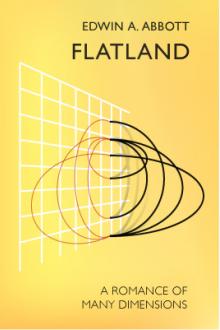Lorna Doone: A Romance of Exmoor, R. D. Blackmore [websites to read books for free txt] 📗

- Author: R. D. Blackmore
Book online «Lorna Doone: A Romance of Exmoor, R. D. Blackmore [websites to read books for free txt] 📗». Author R. D. Blackmore
Although I had seen a great battle before, and a hundred times the carnage, this appeared to me to be horrible; and I was at first inclined to fall upon our men for behaving so. But one instant showed me that they were right; for while the valley was filled with howling, and with shrieks of women, and the beams of the blazing houses fell, and hissed in the bubbling river; all the rest of the Doones leaped at us, like so many demons. They fired wildly, not seeing us well among the hazel bushes; and then they clubbed their muskets, or drew their swords, as might be; and furiously drove at us.
For a moment, although we were twice their number, we fell back before their valorous fame, and the power of their onset. For my part, admiring their courage greatly, and counting it slur upon manliness that two should be down upon one so, I withheld my hand awhile; for I cared to meet none but Carver; and he was not among them. The whirl and hurry of this fight, and the hard blows raining down—for now all guns were empty—took away my power of seeing, or reasoning upon anything. Yet one thing I saw, which dwelled long with me; and that was Christopher Badcock spending his life to get Charley's.
How he had found out, none may tell; both being dead so long ago; but, at any rate, he had found out that Charley was the man who had robbed him of his wife and honour. It was Carver Doone who took her away, but Charleworth Doone was beside him; and, according to cast of dice, she fell to Charley's share. All this Kit Badcock (who was mad, according to our measures) had discovered, and treasured up; and now was his revenge-time.
He had come into the conflict without a weapon of any kind; only begging me to let him be in the very thick of it. For him, he said, life was no matter, after the loss of his wife and child; but death was matter to him, and he meant to make the most of it. Such a face I never saw, and never hope to see again, as when poor Kit Badcock spied Charley coming towards us.
We had thought this man a patient fool, a philosopher of a little sort, or one who could feel nothing. And his quiet manner of going about, and the gentleness of his answers (when some brutes asked him where his wife was, and whether his baby had been well-trussed), these had misled us to think that the man would turn the mild cheek to everything. But I, in the loneliness of our barn, had listened, and had wept with him.
Therefore was I not surprised, so much as all the rest of us, when, in the foremost of red light, Kit went up to Charleworth Doone, as if to some inheritance; and took his seisin of right upon him, being himself a powerful man; and begged a word aside with him. What they said aside, I know not; all I know is that without weapon, each man killed the other. And Margery Badcock came, and wept, and hung upon her poor husband; and died, that summer, of heart-disease.
Now for these and other things (whereof I could tell a thousand) was the reckoning come that night; and not a line we missed of it; soon as our bad blood was up. I like not to tell of slaughter, though it might be of wolves and tigers; and that was a night of fire and slaughter, and of very long-harboured revenge. Enough that ere the daylight broke upon that wan March morning, the only Doones still left alive were the Counsellor and Carver. And of all the dwellings of the Doones (inhabited with luxury, and luscious taste, and licentiousness) not even one was left, but all made potash in the river.
This may seem a violent and unholy revenge upon them. And I (who led the heart of it) have in these my latter years doubted how I shall be judged, not of men—for God only knows the errors of man's judgments—but by that great God Himself, the front of whose forehead is mercy.
CHAPTER LXXII THE COUNSELLOR AND THE CARVER
From that great confusion—for nothing can be broken up, whether lawful or unlawful, without a vast amount of dust, and many people grumbling, and mourning for the good old times, when all the world was happiness, and every man a gentleman, and the sun himself far brighter than since the brassy idol upon which he shone was broken—from all this loss of ancient landmarks (as unrobbed men began to call our clearance of those murderers) we returned on the following day, almost as full of anxiety as we were of triumph. In the first place, what could we possibly do with all these women and children, thrown on our hands as one might say, with none to protect and care for them? Again how should we answer to the justices of the peace, or perhaps even to Lord Jeffreys, for having, without even a warrant, taken the law into our own hands, and abated our nuisance so forcibly? And then, what was to be done with the spoil, which was of great value; though the diamond necklace came not to public light? For we saw a mighty host of claimants already leaping up for booty. Every man who had ever been robbed, expected usury on his loss; the lords of the manors demanded the whole; and so did the King's Commissioner of revenue at Porlock; and so did the men who had fought our battle; while even the parsons, both Bowden and Powell, and another who had no parish in it, threatened us with the just wrath of the Church, unless each had tithes of the whole of it.
Now this was not as it ought to be; and it seemed as if by burning the nest of robbers, we had but hatched their eggs; until being made sole guardian of the captured treasure (by reason of my known honesty) I hit upon a plan, which gave very little satisfaction; yet carried this advantage, that the grumblers argued against one another and for the most part came to blows; which renewed their goodwill to me, as being abused by the adversary.
And my plan was no more than this—not to pay a farthing to lord of manor, parson, or even King's Commissioner, but after making good some of the recent and proven losses—where the men could not afford to lose—to pay the residue (which might be worth some fifty thousand pounds) into the Exchequer at Westminster; and then let all the claimants file what wills they pleased in Chancery.
Now this was a very noble device, for the mere name of Chancery, and the high repute of the fees therein, and low repute of the lawyers, and the comfortable knowledge that the woolsack itself is the golden fleece, absorbing gold for ever, if the standard be but pure; consideration of these things staved off at once the lords of the manors, and all the little farmers, and even those whom most I feared; videlicet, the parsons. And the King's Commissioner was compelled to profess himself contented, although of all he was most aggrieved; for his pickings would have been goodly.
Moreover, by this plan I made—although I never thought of that—a mighty friend worth all the enemies, whom the loss of money moved. The first man now in the kingdom (by virtue perhaps of energy, rather than of





Comments (0)